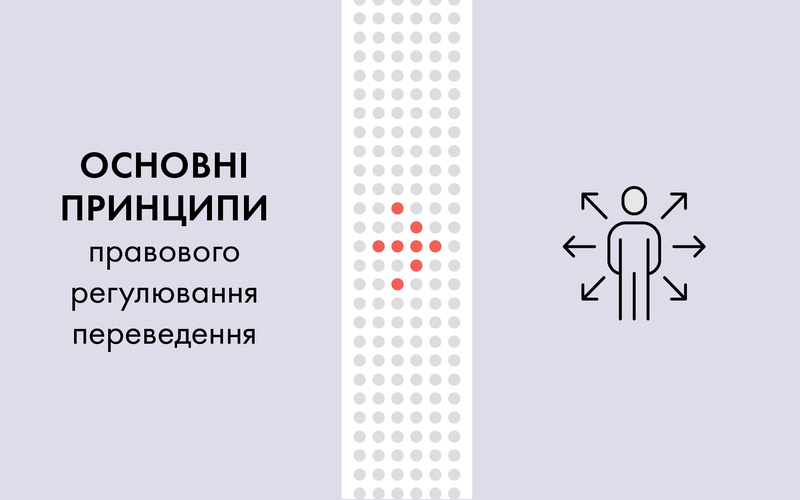active and purposeful military lawyer with more than 4 years of experience
Transfer without consent of the employee during martial law
Martial law
The war radically changed the life of every Ukrainian. The state of war in which our country found itself certainly affected all spheres of life of Ukrainians, including every employee and every employer.
Most of the issues related to martial law are regulated by the Law of Ukraine dated May 12, 2015 No. 389-VIII "On the Legal Regime of Martial Law" (hereinafter - Law No. 389).
Martial law is a special legal regime introduced in Ukraine or in some of its localities in the event of armed aggression or threat of attack, danger to the state independence of Ukraine, its territorial integrity and provides for the provision of appropriate state authorities, military command, military administrations and local self-government bodies powers necessary to avert the threat, repulse armed aggression and ensure national security, eliminate the threat of danger to the state independence of Ukraine, its territorial integrity, as well as the temporary, threat-induced, restriction of the constitutional rights and freedoms of a person and citizen and the rights and legitimate interests of legal entities with the indication period of validity of these restrictions (Article 1 of Law No. 389).
From March 24, 2022, the Law of Ukraine dated March 15, 2022 No. 2136-IX "On the Organization of Labor Relations in Martial Law" (hereinafter - Law No. 2136).The law defines the specifics of the labor relations of employees of enterprises, institutions, organizations (hereinafter referred to as the enterprise) regardless of the forms of ownership, type of activity and industry affiliation, as well as persons who work under an employment contract with natural persons, for the period of martial law. The provisions of Law No. 2136, which regulate labor relations differently than the Labor Code of Ukraine (hereinafter referred to as the Labor Code), have priority during martial law.
You may be interested in reading articles on such topics as:
Transfer of employees
The labor legislation of Ukraine guarantees the employee compliance with the terms of the employment contract that were stipulated when it was concluded. According to the Labor Code, the employer has the right, under certain conditions, to transfer the employee to a job that is not stipulated by the employment contract.
The legislation does not define what transfer to another job is, but only contains the basic principles of its legal regulation.
Paragraph 31 of the Resolution of the Plenum of the Supreme Court of Ukraine dated November 6, 1992 No. 9 "On the practice of consideration of labor disputes by courts" contains an explanation that a transfer to another job is considered to be the assignment of an employee to a job that does not correspond to the specialty, qualification or position specified in the employment contract.
As a general rule, the transfer of an employee requires his consent. Only in exceptional cases is it allowed to temporarily transfer an employee to a job not stipulated by an employment contract without his consent (part two of Article 33 of the Labor Code).
Law No. 2136 stipulates that in the conditions of martial law, the employer has the right to transfer the employee without his consent to another job that is not determined by the terms of the employment contract.
Transfer of employees in exceptional cases
The legislation provides for the possibility of transferring an employee to another job without his consent only under certain conditions.
The labor legislation does not contain a definition of the term "circumstances that endanger or may endanger the life or normal living conditions of people."
According to point "d" of part 2 of article 2 of the Convention of the International Labor Organization of June 28, 1930 No. 29 "On Forced or Compulsory Labor" (ratified by Ukraine on August 10, 1956), the concept of "forced or compulsory labor" does not belong any work or service required under extraordinary circumstances, i.e. in cases of:
• wars;
• disaster or threats of disaster, such as fires, floods, famine, earthquakes, severe epidemics or epizootics, an influx of harmful animals or insects, the spread of parasitic plants;
• circumstances that endanger or may endanger the life or normal living conditions of all or part of the population.
Article 43 of the Constitution of Ukraine prohibits the use of forced labor and defines types of work that are not considered forced labor. This includes, in particular, military or alternative (non-military) service, as well as work or service performed by a person under a sentence or other court decision or in accordance with martial law and emergency laws.
Therefore, work under exceptional circumstances and in cases provided for by law is not forced labor, does not contradict the principle of freedom of labor, and therefore it is possible to involve workers without their consent.Features of transfer to another job
Transfer to another job will be considered legitimate if certain conditions are met.
Terms of transfer
1. Transfer is possible only in exceptional circumstances.
2. The work to which the transfer is carried out cannot be contraindicated for the employee due to his state of health.
3. Labor is paid for work performed, but not lower than the average earnings for previous work.
4. The employer has the right to transfer the employee during the period of martial law.
5. Transfer to work is possible in another area where there is no active hostilities.
6. Transfer to work in another area where active hostilities are ongoing cannot be applied without the consent of the employee
If the above conditions are met, the employee may be transferred to another job without his consent. However, the transfer must be justified and documented.
You may be interested in reading articles on such topics as: collection of debt from wages recovery of wages through court recovery of wage arrears recovery of wages recovery of wages in court recovery of wages through court
EMPLOYEE TRANSFER PROCEDURE
STAGE 1
Fixing the circumstances Fixing the circumstances
Since the transfer without the consent of the employee is allowed only in cases caused by extraordinary circumstances, the employer must record the fact of the occurrence of an exceptional case, for example, with an act on the causes and consequences of the accident, a protocol of examinations, etc.
2 STAGE
Determination of employees who may be transferred to another job without their consent
The number of employees to be transferred will depend on the scale and nature of the situation. At this stage, it is necessary to find out whether among the employees there are persons for whom transfer restrictions have been established.
3 STAGE
Justification of the transfer
The head of the division in which the event took place submits a report to the director, in which he notes the nature of the force majeure circumstances that occurred, indicates the list of employees who need to be transferred, as well as the period for which they need to be transferred. The report note must contain the manager's resolution indicating the need to prepare an order for the temporary transfer of employees.
4 STAGE
Issuance of a transfer order
Having made a decision on the need to temporarily transfer employees to another job, the employer issues an order on transfer with a mandatory indication of the reason that forces him to transfer employees to another job, terms of transfer and remuneration.
Execution of the transfer order in this case is the employee's duty. Refusal to comply with the order may be grounds for disciplinary action under Article 139 of the Code of Criminal Procedure and the application of disciplinary sanctions (Article 147 of the Code of Criminal Procedure).5 STAGE
Acquaintance of employees with the order
In the case of transfer to another job, as well as in the case of hiring, the employee is informed of the order to be signed. In addition, the employee is explained his rights and obligations, and in the cases stipulated by the law, the necessary labor protection measures are carried out.
After the expiration of the temporary transfer period, employees may return to their previous work without issuing a separate order (if the transfer period is established by the order).
Fixation of circumstances
Since transfer without the employee's consent is allowed only in cases caused by extraordinary circumstances, the employer must record the occurrence of an exceptional case, for example, with an act on the causes and consequences of the accident, an inspection protocol, etc.
2 STAGE Determination of employees who can be transferred to another job without their consent
The number of employees who need to be transferred will depend on the scale and nature of the situation. At this stage, it is necessary to find out whether there are persons among the employees in respect of whom transfer restrictions have been established.
3 STAGE
Justification of translation
The head of the unit in which the event occurred submits a detailed note to the director, in which he notes the nature of the force majeure circumstances that occurred, indicates the list of employees who need to be transferred, as well as the period for which they need to be transferred. The detailed note must contain the resolution of the manager, which indicates the need to prepare an order for the temporary transfer of employees.
4 STAGE
Issuance of the transfer order
Having made a decision on the necessity of temporary transfer of employees to another job, the employer issues an order on transfer with a mandatory indication of the reason why he is transferring employees to another job, terms of transfer and payment of wages.
Fulfilling the transfer order in this case is the employee's responsibility. Refusal to comply with the order can serve as a basis for bringing to disciplinary responsibility under Article 139 of the Code of Criminal Procedure and the application of disciplinary sanctions (Article 147 of the Code of Criminal Procedure). 5 STAGE
Acquaintance of employees with the order
When transferring to another job, as well as in the case of hiring, the employee is presented with an order to be signed. In addition, the employee is explained his rights and obligations, and in the cases stipulated by the legislation, the necessary labor protection measures are carried out.
After the end of the period of temporary transfer, employees can return to the performance of their previous work without issuing a separate order (if the period of transfer is established by the order).





























